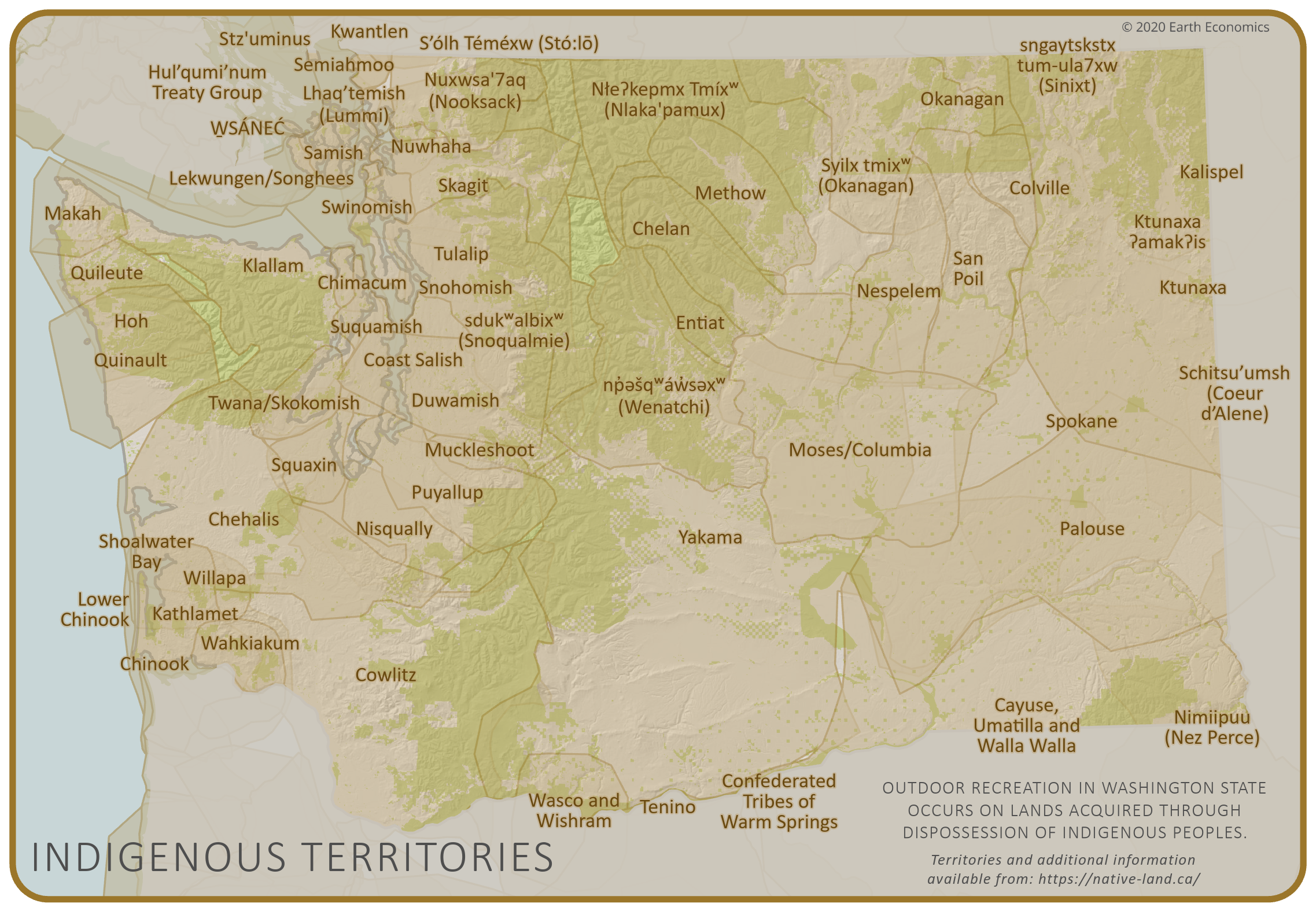2020 Update | Washington State
Washington offers hundreds of outdoor recreation activities that are enjoyed by residents and tourists alike. These include activities such as hiking, biking, rock climbing, horseback riding, hunting, fishing, snowmobiling, camping, dirt biking, off-road vehicle (ORV), and beachcombing. Building off an analysis conducted in 2015, our Economic Analysis of Outdoor Recreation in Washington State provides updated data on the estimated economic contribution of outdoor recreation, as well as non-monetary benefits (ecosystem service values) that stem from public recreation lands. Outdoor recreation spending diversifies Washington’s economy through outdoor recreation expenditures, spending effects, consumer surplus, and environmental benefits.
Valuing Economic Benefits The forests sequestered carbon, stored water for use at a later date, reduced the risk of flooding, and provided habitat for animals and plants. Natural ecosystems provided the state’s communities with an immense amount of benefits that would be expensive – if not prohibitive – to replace. Through a variety of economic approaches, we valued these benefits in economic terms.
Concepts and Methods This analysis estimated these benefits through an economic contribution analysis, using input-output (I-O) modeling to measure the financial linkages between industries within a regional economy. These concepts and methods allowed for valuing the economic contribution of outdoor recreation and the economic benefits that stem from public recreation lands.
Ecosystem Services These are the benefits that people derive from nature. Forests, watersheds, mountains, and shorelines are examples of natural capital assets. These assets contain multiple ecosystems that perform a variety of ecosystem functions. These functions, in turn, provide beneficial services that enrich the human experience. The ecosystem services valued in this report are:
Information: aesthetic, existence value, science and education
Provisioning: food
Regulating: air quality, climate stability, disaster risk reduction, soil retention, water supply and quality
Supporting: habitat
Click Image Above to Enlarge
“Outdoor recreation is a part of the heritage and culture of Washington, a value beyond what can be tallied on a spreadsheet, however, this report illustrates how much people plan and prepare to make the most of the outdoors, particularly today with it being one piece of normalcy we all need to get us through this unprecedented time.”
Report Highlights*
Building off an analysis conducted in 2015, this report estimates that outdoor recreation in Washington supports $26.5 billion in annual expenditures.
This spending goes on to support 264,000 jobs throughout Washington. This means that for every $1 million spent on outdoor recreation, 10 jobs are supported.
The direct spending and associated secondary effects, or multiplier effects, are estimated to be $40.3 billion. This means for every dollar spent on outdoor recreation, $1.52 in economic activity is supported.
Each year, Washington’s public lands provide between $216 billion and $264 billion in environmental benefits.
This report estimates the consumer surplus value of recreation on public lands at $33 billion.
In the media
Outdoor Recreation Generates Big Money in Washington, Washington State Department of Natural Resources
New Report: Camping Could Save the Economy/Our Lives, The Stranger
Outdoor Recreation Provides Big Boost to Washington Economy, Even During COVID-19, The Seattle PI
U.S. Fish and Wildlife chief wants more people of color enjoying the outdoors, The News Tribune
Great American Outdoors Act Signed into Law, The Yakima Herald
Outdoor Recreation Generates Big Money in Washington, The Island’s Sounder
Contact Us
Funding provided by: Washington State Recreation and Conservation Office, Washington State Department of Natural Resources, and Recreational Equipment, Inc. (REI).
Suggested Citation: Mojica, J., Fletcher, A., 2020. Economic Analysis of Outdoor Recreation in Washington State, 2020 Update. Earth Economics. Tacoma, WA.
*As is the case throughout the world, the coronavirus disease (COVID-19) pandemic has had a drastic impact on Washington’s economy. In April 2020, the seasonally adjusted unemployment rate in Washington was 15.4%, 11% points higher than the April 2019 rate of 4.4%. The recreation economy is a major jobs supporter in the leisure and hospitality industry, retail trade, and government, all of which have been among the hardest hit industries. This report gathers and interprets recreation participation data from 2019 and does not reflect the impacts of COVID-19. The estimates presented in this report provide a strong baseline for future analyses to better understand the impacts that COVID-19 had on Washington’s outdoor recreation economy.










